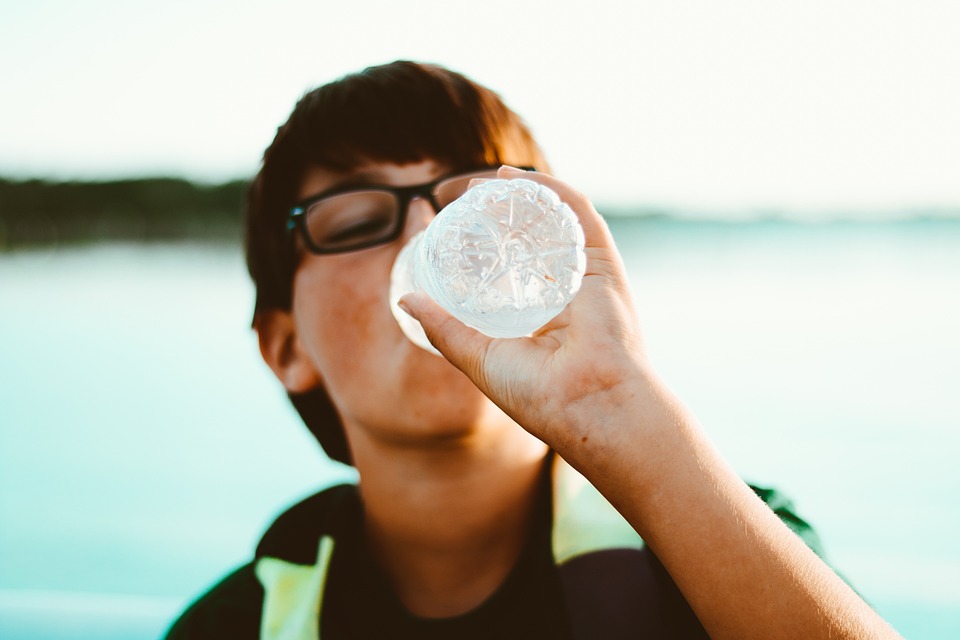Hydration for Athletes and Executives
Hydration Station: How Proper Fluid Intake Can Enhance Athletic Abilities
Hydration Station: How Proper Fluid Intake Can Enhance Athletic Abilities
In the world of sports and physical activities, proper hydration is often underestimated. Athletes may spend hours training, working on strength, endurance, and technique, but neglecting to maintain adequate fluid intake can significantly hinder their performance. Hydration plays a vital role in optimizing athletic abilities and overall well-being. This article will explore the importance of hydration for athletes and provide valuable insights on how to maintain proper fluid intake to enhance athletic performance.
Why Is Hydration Crucial for Athletes?
Fluids are essential for numerous bodily functions, including regulating body temperature, transporting nutrients, and removing waste products. When engaging in physical activities, our bodies lose fluids through sweat, and if not replenished adequately, it can result in dehydration. The repercussions of dehydration can be detrimental to an athlete’s performance. Here are some reasons why hydration is crucial:
1. Maintains Optimal Performance
Whether you’re a professional athlete or a recreational one, staying hydrated is vital for maintaining physical performance. Dehydration can lead to fatigue, decreased endurance, reduced strength, and impaired cognitive function. By remaining hydrated, athletes can push their limits, stay more energetic, and achieve their goals in training and competitions.
2. Aids in Recovery
Intense physical activities can result in muscle damage and inflammation. Proper hydration helps in flushing out toxins from the body, providing essential nutrients to muscles, and decreasing the recovery time. By replenishing fluids promptly after exercise, athletes can restore their body’s balance and facilitate optimal recovery.
3. Enhances Thermoregulation
During exercise, the body’s core temperature rises, leading to a higher risk of heat exhaustion or heat stroke. Adequate hydration enables the body to regulate its temperature by sweating and maintaining a stable core temperature. It helps to dissipate heat more efficiently, preventing overheating and potential heat-related illnesses.
4. Supports Joint and Muscle Health
Well-hydrated tissues assist in reducing friction between joints, thereby minimizing the risk of injuries such as sprains or strains. Additionally, hydrated muscles are more elastic and function optimally, reducing the likelihood of cramps and muscle fatigue during vigorous activities.
How to Maintain Proper Fluid Intake
Now that we understand the importance of hydration for athletes, it is crucial to know how to maintain proper fluid intake. Here are some valuable tips to keep athletes adequately hydrated:
1. Drink Water Regularly
The simplest way to ensure hydration is to drink water regularly throughout the day, even when not engaged in physical activities. Athletes should establish a habit of sipping water every hour to maintain hydration levels and avoid feeling thirsty.
2. Pre-Hydration
Before starting any physical activity, it is essential to be adequately hydrated. Pre-hydration helps to prevent dehydration during exercise. Athletes should consume around 400-600ml of water or a sports drink 2-3 hours before starting their workout or game.
3. During Physical Activities
During intense exercise sessions or competitions, athletes should aim to drink water at regular intervals. The exact amount varies depending on the individual’s needs, intensity of exercise, duration, and environmental conditions. As a general guideline, consuming 150-350ml of fluid every 15-20 minutes is recommended.
4. Post-Exercise Hydration
Rehydrating after exercise is essential for recovery. Athletes should consume approximately 1.5 times the fluid lost during exercise within the first 2 hours after physical activity. Including electrolytes, such as sodium and potassium, in post-workout rehydration can aid in restoring balance.
5. Monitor Urine Color
Monitoring urine color is an effective way to gauge hydration levels. Light-colored or pale urine indicates proper hydration, while darker urine suggests dehydration. Athletes should aim to maintain light-colored urine throughout the day.
FAQs
1. How much water should athletes drink daily?
The recommended daily fluid intake for athletes varies based on factors such as body weight, activity level, and climate. As a general guideline, athletes should aim to consume around 30-35ml of water per kilogram of body weight per day. However, individual needs may vary, so it is important to consult a healthcare professional or sports nutritionist for personalized recommendations.
2. Are sports drinks necessary for hydration?
Sports drinks can be beneficial for athletes engaging in intense exercise lasting more than 60 minutes. These drinks contain electrolytes, carbohydrates, and fluids that help replenish lost nutrients and enhance hydration. However, for shorter exercise durations, water is typically sufficient to maintain hydration.
3. Can overhydration be harmful?
While staying hydrated is crucial, excessive fluid intake can lead to a condition called hyponatremia, where the body’s electrolyte balance is disrupted. Hyponatremia can be dangerous and potentially life-threatening. Therefore, it is important to strike a balance and ensure proper fluid intake without going overboard.
In conclusion, proper hydration is a fundamental element that can significantly enhance athletic abilities. By understanding the importance of fluid intake and incorporating appropriate hydration practices, athletes can optimize their performance, promote recovery, and lower the risk of injury. Hydration should be a priority for all individuals engaged in physical activities, from professional athletes to weekend warriors.

